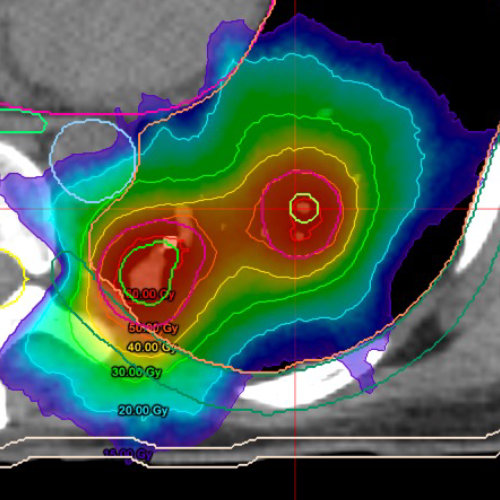



Interrogation of multicellular tumor-immune interactions
Cancer often comprises a seemingly disorganized, complex network of cells and molecules. Nevertheless, conserved rules of engagement exist. We are studying human cancer and engineered mouse models to discover such mechanisms, leveraging our expertise in high parameter immune profiling at single cell and subcellular resolution. Intriguingly, we found evidence for T cells that promote tumor progression by sending inflammatory signals to tumor cells, which use these cues to create an immunosuppressive tumor microenvironment. We are using single cell spatial proteomics and transcriptomics technologies to understand these interactions in human cancers and mouse models.


Leveraging immunobiological consequences of stereotactic radiation:
Modern therapeutic radiation can be used to deliver highly biologically active energy to anywhere in the body with millimeter precision. The majority of cancer patients in the clinic receive radiation therapy during the course of their care. While radiation therapy has historically been used for direct tumor cytotoxicity, it is overwhelmingly clear that irradiation causes profound changes in the immune, stromal and tumor compartments. We are leveraging our expertise in high parameter immune profiling and molecular engineering to discover conserved biological programs that respond to stereotactic ionizing radiation, with the goal of targeting these mechanisms as therapeutic opportunities.
Engineering new tools for mechanistic and therapeutic discovery
We are generating new synthetic immune modules with customizable input and output behavior to engineer new platforms allowing us to dissect cell interactions in cancer immunity, and to construct controllable therapeutic modules against cancer.